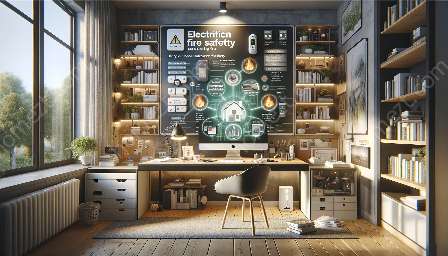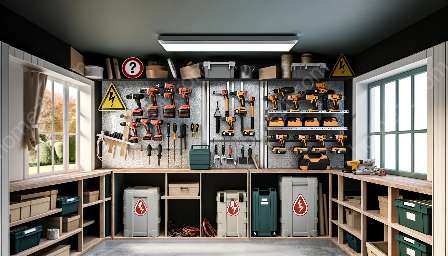Understanding and maintaining home wiring safety is critical for preventing electrical hazards and ensuring overall home safety and security. From basic electrical maintenance to advanced safety measures, this comprehensive guide covers everything you need to know to protect your home and loved ones.
Importance of Home Wiring Safety
Home wiring safety is essential for preventing electrical accidents, fires, and other hazards that can put your family and property at risk. Proper wiring practices and maintenance help minimize the chances of electrical malfunctions, shocks, and other dangerous situations, ensuring a safe and secure living environment.
Common Home Wiring Hazards
Identifying common home wiring hazards is the first step toward enhancing electrical safety. Some of the most prevalent issues include outdated wiring, overloaded circuits, frayed or damaged wires, improper insulation, and faulty electrical connections. These hazards can lead to power outages, electrical fires, and even fatal accidents if not addressed promptly.
Ensuring Home Electrical Safety
By following a few simple guidelines and best practices, you can significantly reduce the risk of electrical hazards in your home. Start by inspecting your home's wiring system and addressing any issues such as exposed wires, loose connections, or outdated components. Consider hiring a professional electrician to perform a thorough evaluation and recommend necessary upgrades.
Basic Home Wiring Safety Tips
- Regularly inspect and replace old or damaged electrical outlets, switches, and wiring.
- Avoid overloading circuits by using surge protectors and distributing heavy electrical loads across multiple outlets.
- Keep electrical cords away from water sources and high-traffic areas to minimize the risk of tripping or damage.
- Ensure that all electrical installations, repairs, and modifications comply with local building codes and safety standards.
Advanced Home Wiring Safety Measures
- Consider installing ground fault circuit interrupters (GFCIs) in wet or potentially hazardous areas, such as kitchens, bathrooms, and outdoor spaces.
- Upgrade to tamper-resistant receptacles to prevent children from inserting foreign objects into electrical outlets.
- Implement arc fault circuit interrupters (AFCIs) to detect and prevent electrical fires caused by faulty wiring or electrical malfunctions.
- Regularly schedule professional electrical inspections to identify potential hazards and ensure optimal home wiring safety.
Enhancing Overall Home Safety & Security
While focusing on home wiring safety is crucial, it's equally important to consider other aspects of home safety and security. From installing smoke detectors and carbon monoxide alarms to implementing smart home security systems, there are numerous measures you can take to create a secure living environment for your family.
Integration with Home Safety & Security Systems
Integrating home wiring safety practices with advanced safety and security systems can provide comprehensive protection for your home. Consider investing in smart home devices, such as motion-activated lights, security cameras, and remote monitoring systems, to enhance overall home safety and security.
Educating Family Members
Finally, educating your family members about home wiring safety and general home safety practices is crucial. Create a home safety plan that includes emergency procedures, evacuation routes, and guidelines for using electrical appliances and equipment safely. Encourage open communication about safety concerns and empower everyone in your household to prioritize home safety and security.



















